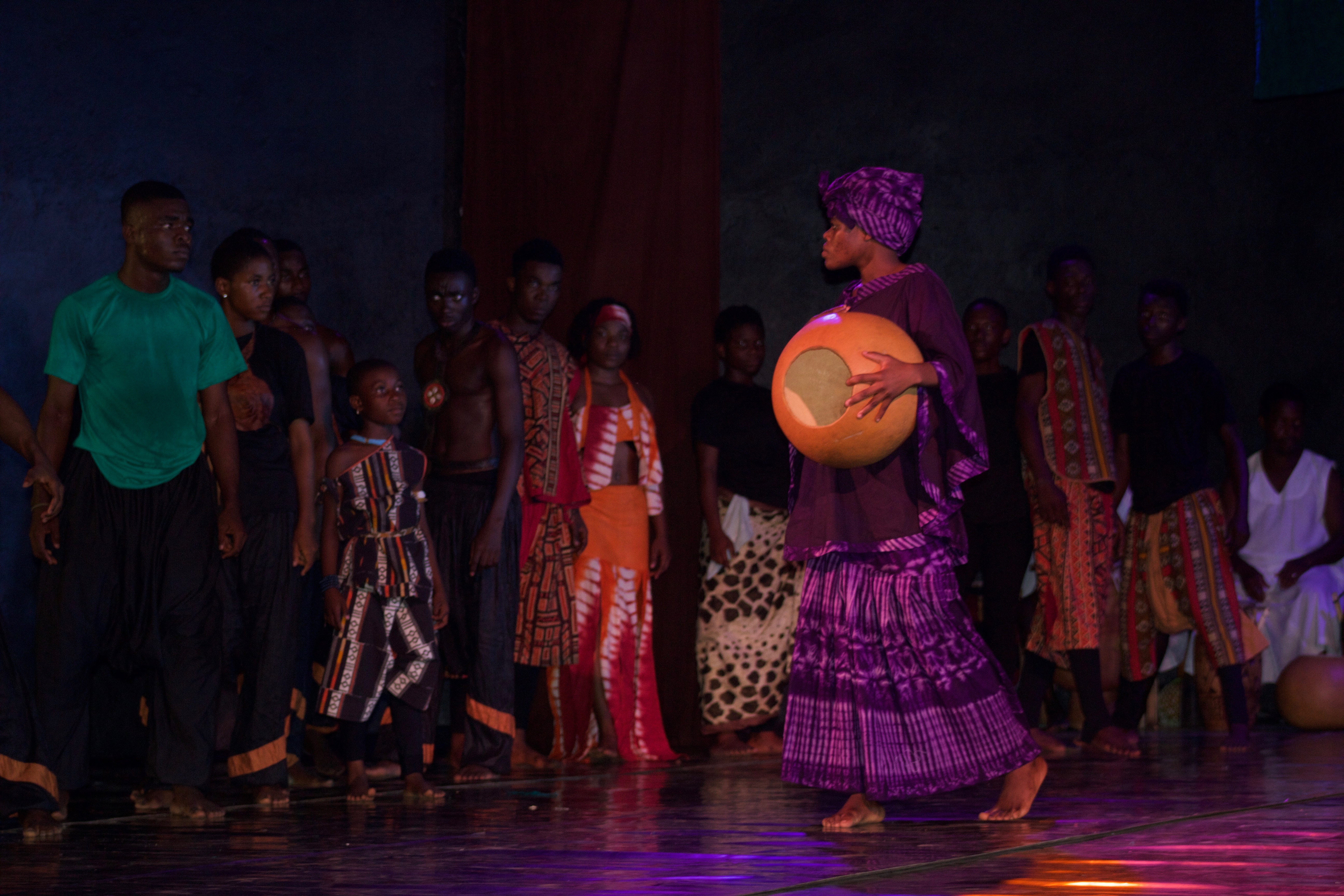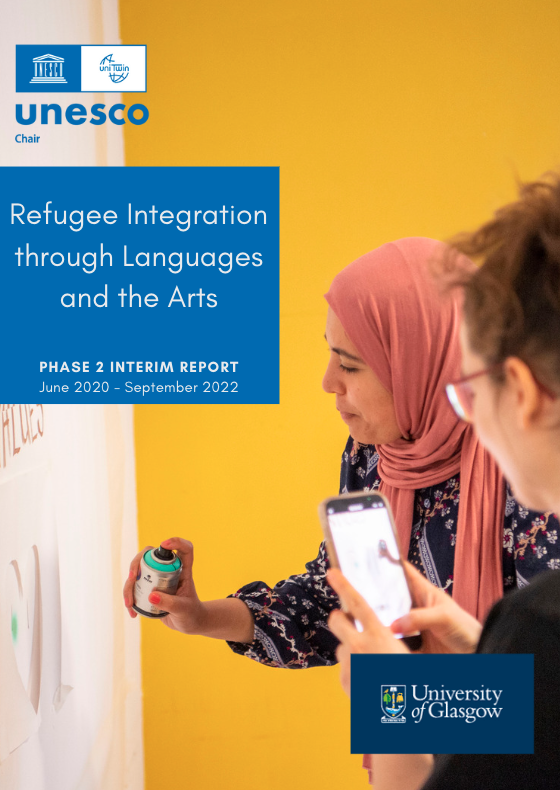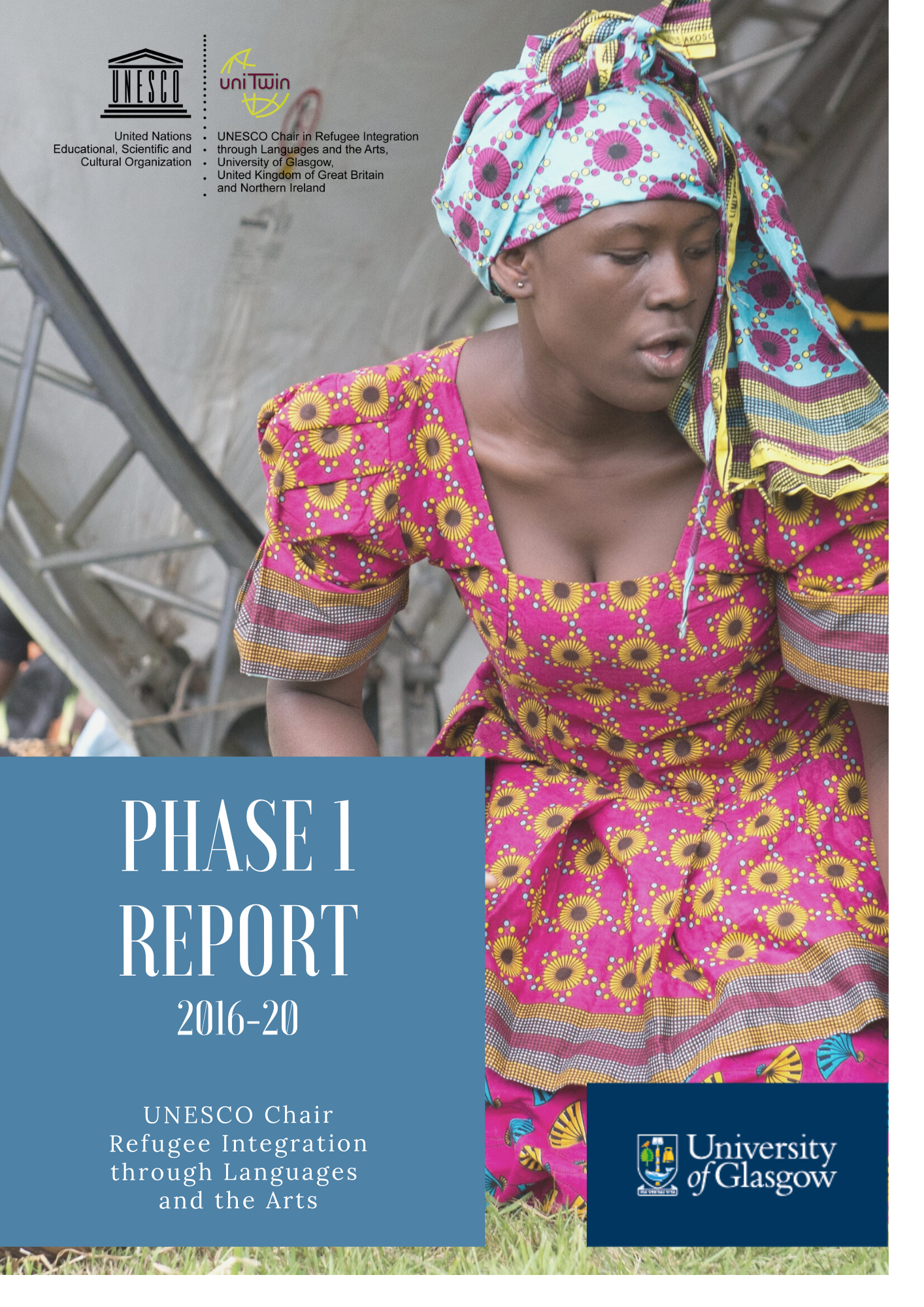ABOUT THE UNESCO CHAIR PROGRAMME
The UNESCO Chair hosted within the School of Education at the University of Glasgow undertakes a programme of work focused on multilingual knowledge exchange in the area of refugee and humanitarian protection, with a focus on fostering integration through creative and cultural expressions. Chair activities take place in collaboration with researchers and research networks at Glasgow (e.g. GRAMNet) and internationally. We also work with artists, public and third sector organisations, NGOs, migrants and refugees. The Chair builds on research findings and partner priorities in such a way as to promote creative, practical multilingual action for change at all levels of society, in all contexts. Our research projects links us with Global South partners with experience of historical and present day refugee integration in their communities. The Chair works to support research and action focused on fostering cultural expressions of heritage and diversity with displaced peoples, and academic freedom for those at risk.
The ‘Refugee Crisis’ in Europe came to public attention in 2015, and represents a chronic humanitarian need and global challenge to research and public thinking. International policy is struggling to address the scale of crisis and the need for innovative approaches to capacity building, knowledge exchange and integration of host and refugee communities. Conceptually and practically the post-war consensus around humanitarian protection is at breaking point. ‘Crisis’ thinking and uni-directional concepts of integration prevail. Successful multilingual, multimodal and multilateral models of integration are urgently needed. Research at the University of Glasgow on refugee integration, and the use of languages and the creative/performing arts, provides innovative, interdisciplinary ways approaching multilateral integration (see AHRC Large Grant "Researching Multilingually at the Borders of Language, the Body, Law and the State" - RM Borders). Strong, established partnerships with the Islamic University of Gaza and with University of Ghana, Legon mean the UNESCO Chair provides a unique opportunity for South-South to North learning from contexts which have long term refugee and migratory experiences and where resilience has been developed, often in the face of overwhelming linguistic and cultural destruction.
The Chair supports the public engagement and knowledge exchange work of the University of Glasgow. Within the UNESCO RIELA programme, researchers and artists effect knowledge exchange and offer an innovative, interdisciplinary model for contexts hosting and sending new arrivals. This work builds directly on the outcomes of RM Borders research on languages and cultural expressions of diversity amongst global refugee populations. The Chair is working with partners across the international higher education, public, government, creative and NGO sectors with regard to multilateral integration, learning directly from ‘experts by experience’ in and from the Global South.
The UNESCO Chair in RIELA is part of UNESCO in the UK. The link to our page on that website is here.
UNESCO Chair objectives
- The development of multilateral integration of refugee and displaced populations within societies in the Global South and the Global North, by sustaining linguistic and cultural diversity and promoting a culture of peace.
- Enhancing and replicating models for refugee integration by intentional multilingual learning with refugees and with new host communities, in order to foster creativity, diversity of cultural expressions and intercultural capabilities.
- Working with partners in distinctive contexts in the Global South – specifically Gaza and Ghana – with historical experience of refugee integration and population loss, in order to address needs in Europe and Third Countries presently receiving contemporary displaced peoples. The Chair will work with researchers, refugees, artists, NGOs, policy-makers and governments to plan and evaluate research projects, programmes for action and policy change addressing their specific concerns relating to cultural diversity and languages.
- Working with key scholars through visits, exchanges, events and video-link seminars, in the Global South and also with indigenous peoples.
- Attending specifically to the academic freedom for refugee scholars and displaced peoples thematically across activities in order to promote creative forms of freedom of cultural and academic expression




